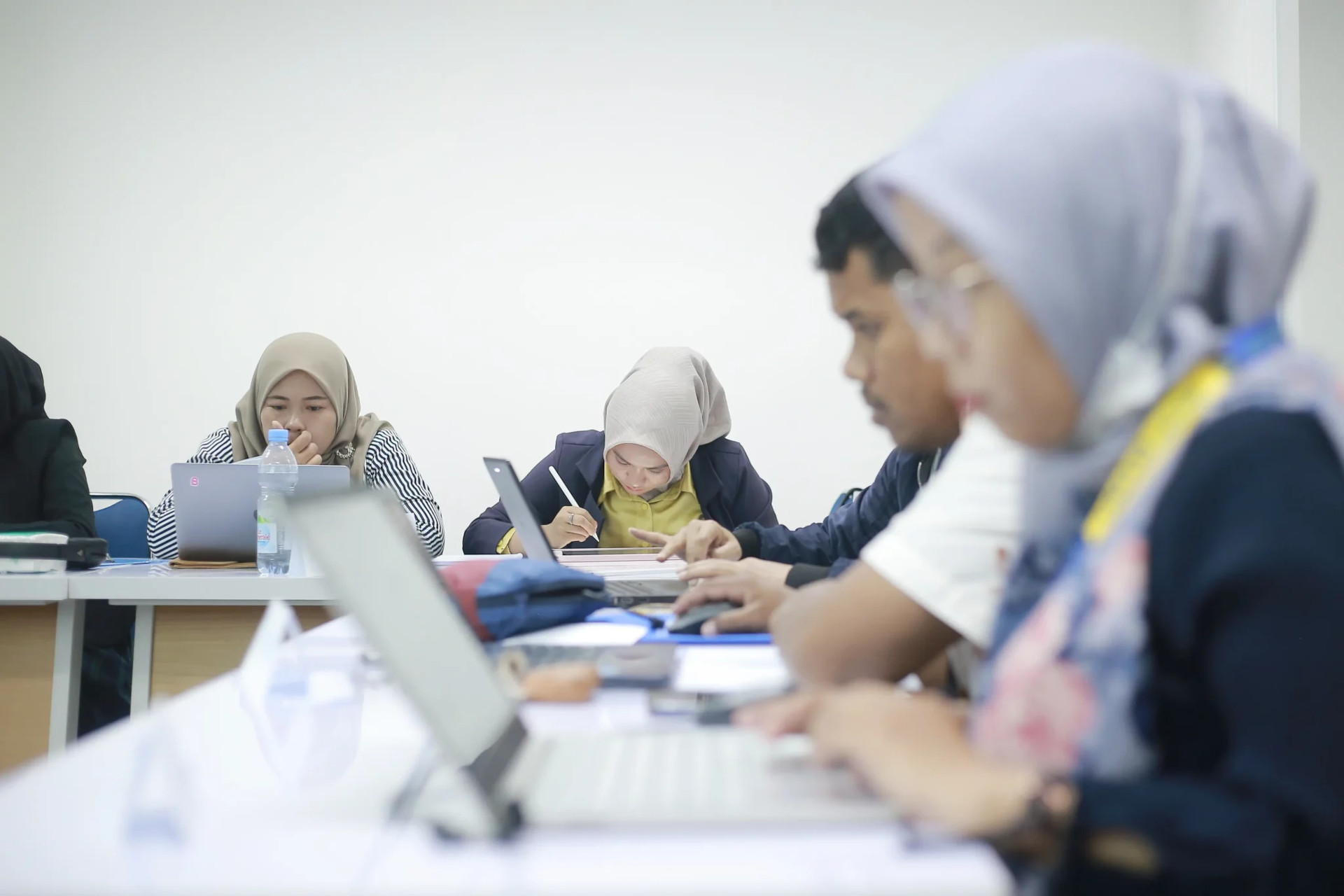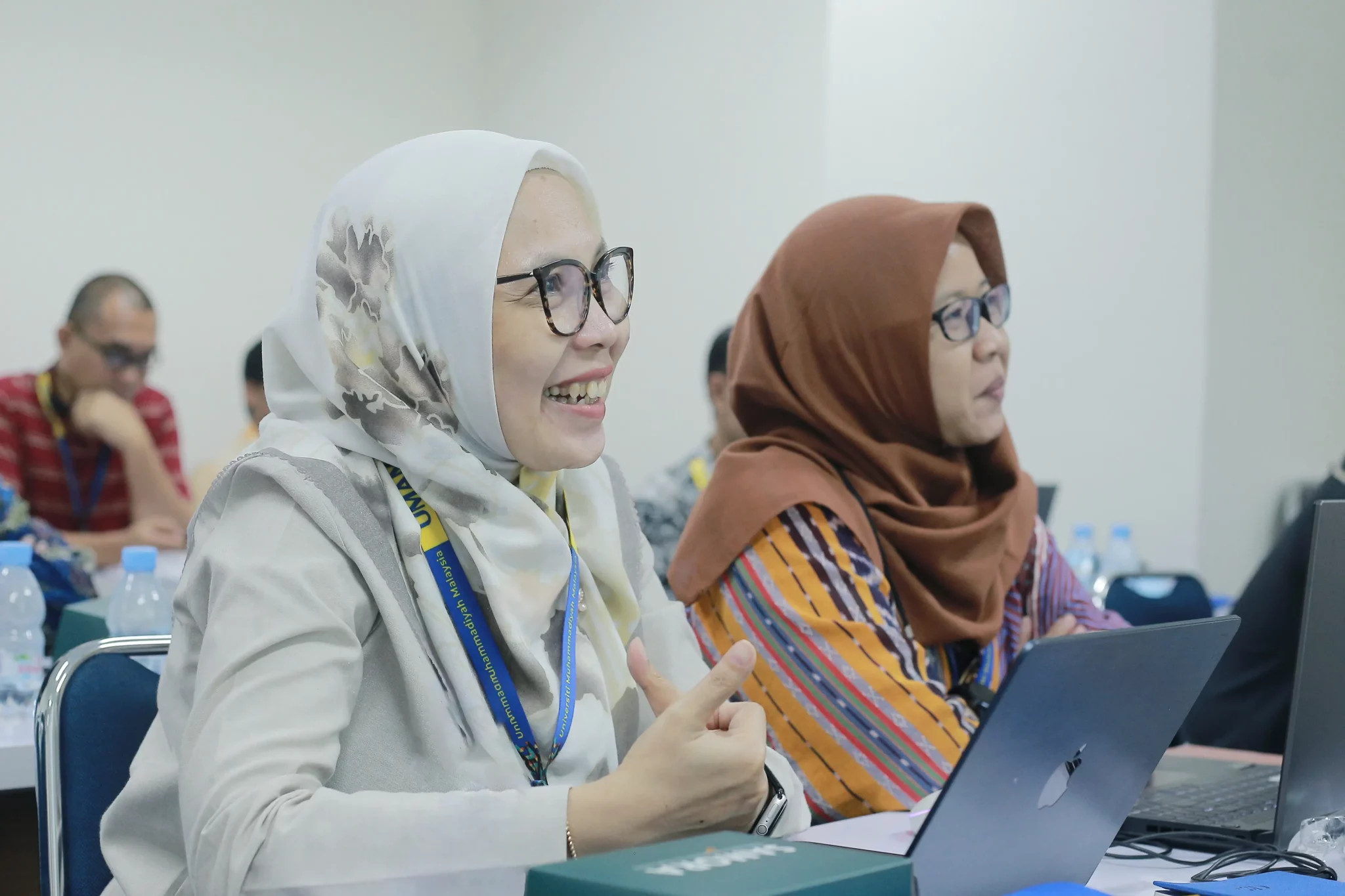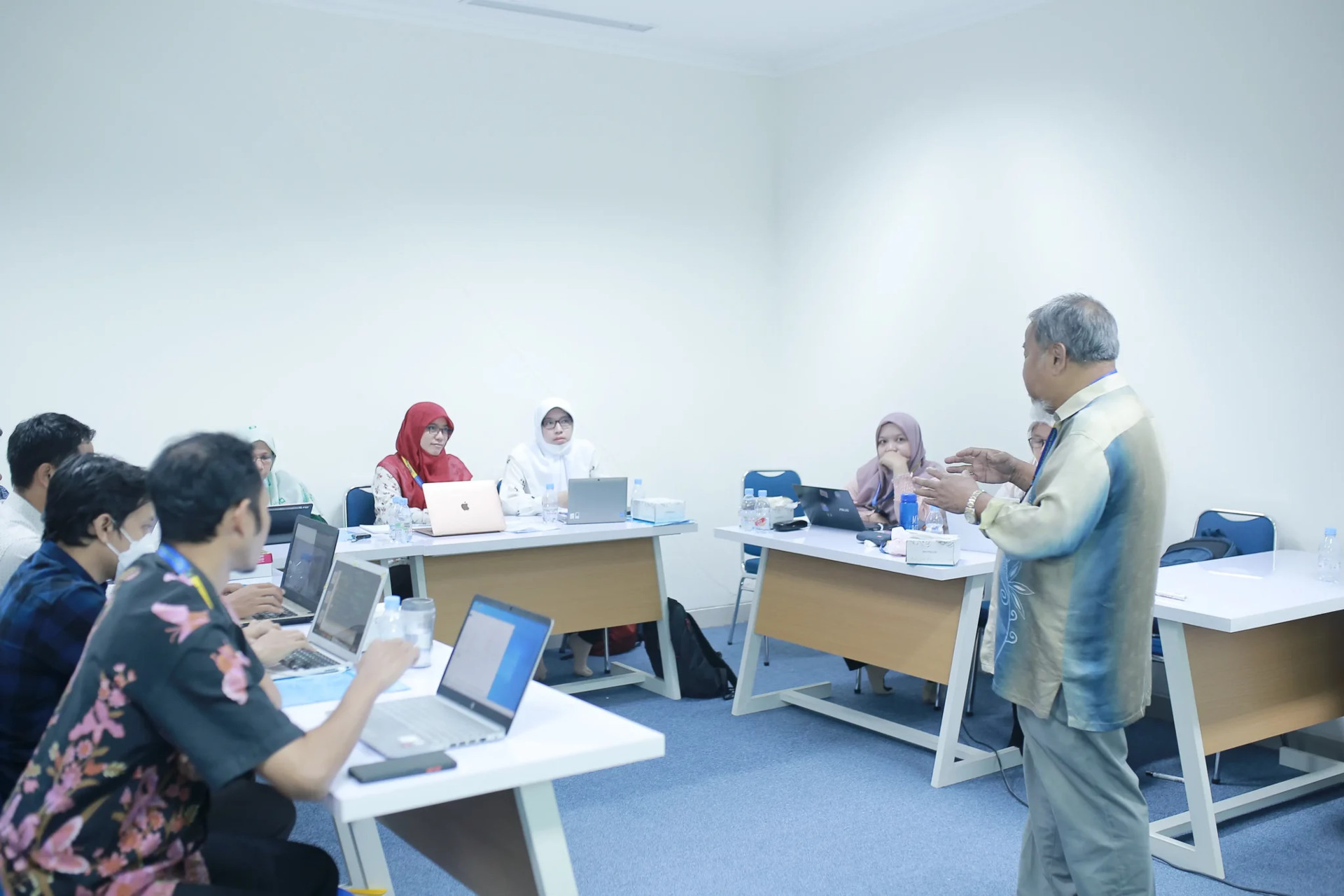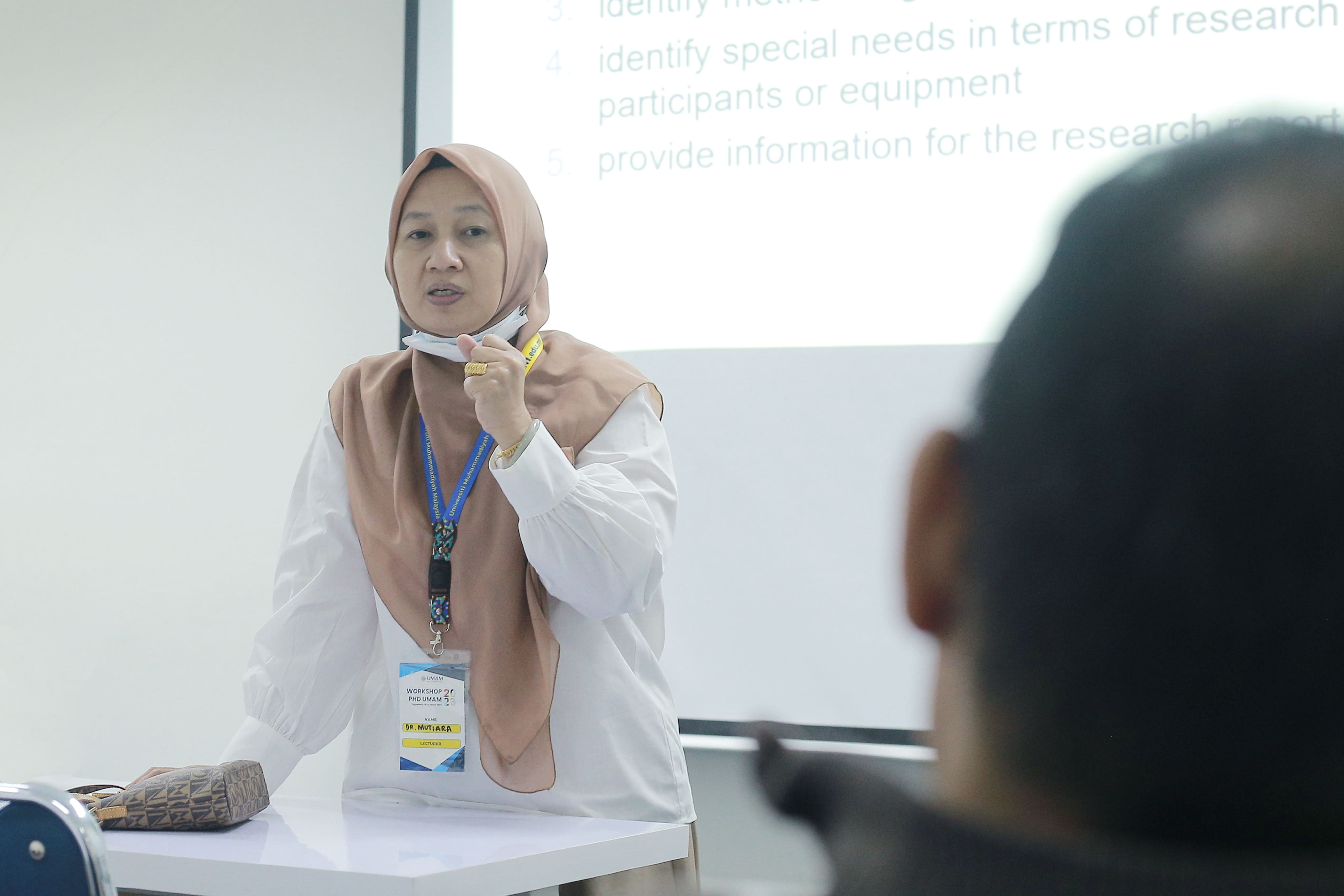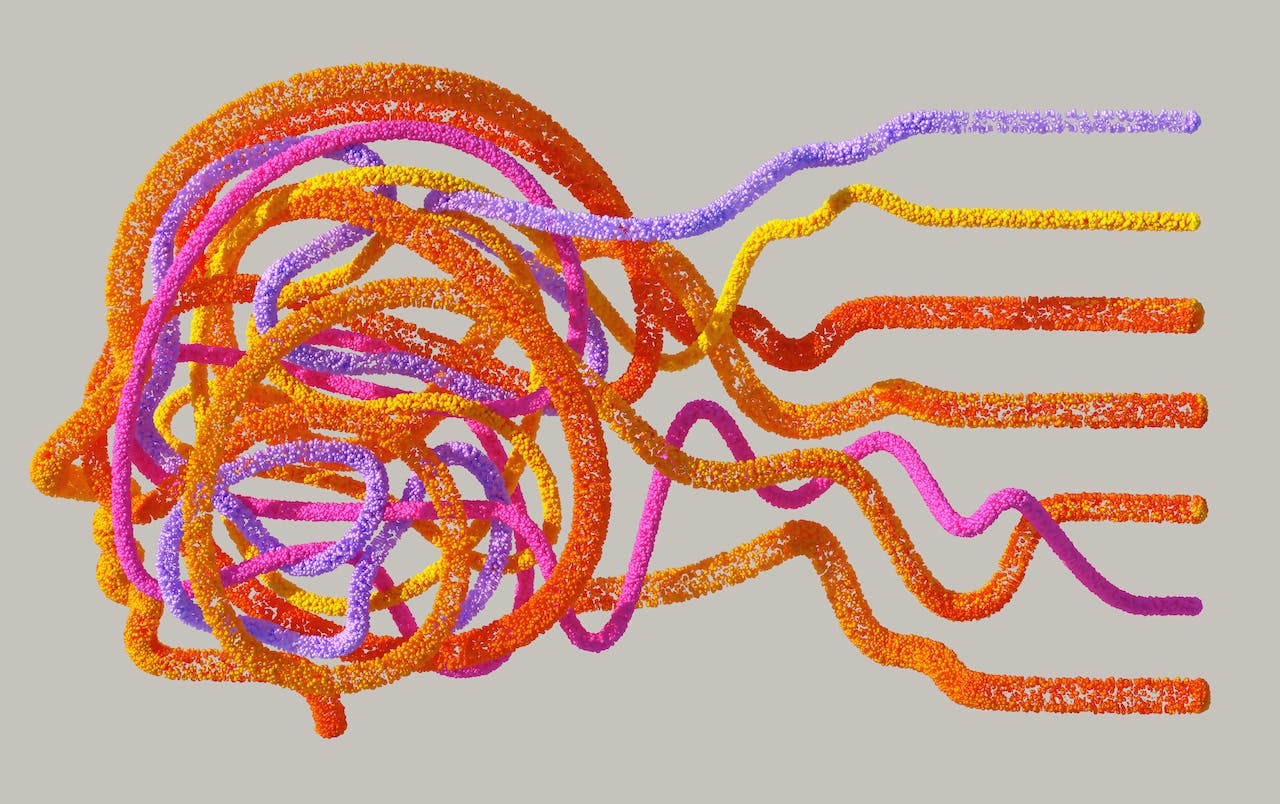
PhD in Computational Science and Engineering
(By Research)
Accreditation: (N/0788/8/0002) (MQA/PA 17507)
Computational Science and Engineering (CSE) is a discipline devoted to the study and advancement of computational methods and data analysis techniques to analyze and understand natural and engineered systems. CSE is inherently interdisciplinary, and integrates concepts and principles from computer science, mathematics, science, and engineering to define a new, cohesive body of knowledge that is rapidly changing. It solves real-world problems in science, engineering, health, and social domains, by using high-performance computing, modeling and simulation, and large-scale Big Data analytics.
Doctor of Philosophy in Computational Science and Engineering (PhD CSE) support the efforts and initiatives to make the Industry Policy 4.0 or Industry 4WRD planning possible. In line with that, FOUR research clusters are being emphasized in the programmes, they are ADVANCED MATERIALS, AEROSPACE TECHNOLOGY, MECHANICS and ADVANCED NUMERICAL METHODS which are reflected in the selections of core and elective courses offered.
Programme Educational Objectives (PEO)
(PEO1)
To produce graduates with ability to handle multidisciplinary problems by assimilating relevant information and applying mathematics, science and engineering principles.
(PEO2)
To produce graduates who can deduce engineering ideas and concepts in order to solve issues in current field concerns and challenges.
(PEO3)
To develop graduates with ability to make proper judgment related to professional, ethical, managerial and other nontechnical issues commonly encountered in engineering practice.
(PEO4)
To develop graduates who can conduct original research and develop new technologies.
Programme Learning Outcomes (PLO)
PLO 1:
Formulate comprehensive, systematic, integrated, new, complex and abstract ideas of current critical issues in the advanced frontiers of knowledge in the latest focus areas of Computational Sciences and Engineering.
PLO 2:
Elaborate critically on new, complex, abstract ideas and current critical issues in the most advanced frontiers of knowledge in the latest focus areas of Computational Sciences and Engineering and other related areas, and modify existing concepts and practices.
PLO 3:
Build mastery of practical, technical skills/practices and scientific skills at the forefront of one or more areas of specialisation and develop new complex skills, techniques and solutions to solve new, highly complex and emerging problems.
PLO 4:
Create effective collaboration with different people in learning and working communities and other groups and networks, ethically and professionally.
PLO 5:
Compile information, insights, ideas and problems, and propose solutions cogently/coherently to peers, scholarly community and society in the latest focus areas of Computational Sciences and Engineering.
PLO 6:
Develop new appropriate tools/methodologies to support and enhance research in the latest focus areas of Computational Sciences and Engineering.
PLO 7:
Critically formulate numerical and scientific data using quantitative or qualitative problem-solving tools.
PLO 8:
Construct substantial autonomy, independence, leadership, and professionalism in research management to contribute to the technological, social and cultural progress of academic and professional practice to the society at large on emerging issues at professional levels.
PLO 9:
Improve responsibility to integrate knowledge for lifelong learning with developing new ideas, solutions and systems, and overall management of one’s research organisation.
PLO 10:
Invent entrepreneurial ventures and projects in the latest focus areas of Computational Sciences and Engineering.
PLO 11:
Discuss emerging ethical, legal and professional issues, their complexities and implications for the advancement of research in the fields and professionally maximise contribution to social, technological and economic developments.
First semester:
List of Compulsory Courses
- TCE5908 Research Methodology
- TCE5907 Research Seminar
- TCE5101 Advanced Numerical Methods
TCE6999 Doctoral Research (Stage-1)
- Research proposal writing
Second semester:
Choose one elective course
- TCE5201 Boundary Element Method
- TCE5301 Advanced Algorithm
TCE6999 Doctoral Research (Stage-2)
- Completing proposal
- Proposal defense should be approved maximum in one year.
Third – Sixth semester
TCE6999 Doctoral Research (Stage 3-6):
- Thesis Writing
- Viva-Voce of thesis defense examined by internal and external examiners.
- Prior to Viva Voce, at least two publications in SCOPUS indexed journals or conference proceedings.
Programme Duration (Full Time)
3 years (6 semesters)
Entry Requirements
- A Master’s degree (Level 7, MQF) in related fields as accepted by the Senate; OR
- A Master’s degree (Level 7, MQF) in non-related fields as accepted by the Senate, subject to having relevant working experience* and rigorous internal assessment**; OR
- A Master’s degree (Level 7, MQF) in non-related fields as accepted by the Senate and without relevant working experience, subject to passing pre-requisite courses***; OR
- Other qualifications equivalent to a Master’s degree (Level 7, MQF) recognised by the Malaysian Government.
English Requirement
English Competency Requirement for International Student:
- Test of English as a Foreign Language (TOEFL) score of 500, or
- International English Language Testing System score of 5.0 or its equivalent, or
- Achieve a minimum Band 4 in Malaysian University English Test (MUET), or
- Any equivalent to Common European Framework of Reference for Languages, CEFR (B2)
MYR 3,625/ Semester
(Local Students)
MYR 5,125/ Semester
(International Students)
Excluding immigration fees, insurance and dormitory.
Note:
- Student pass fees for international students are subjected to a determination under the Malaysian Immigration Department.
- Student insurance fees are subjected to the statutory provisions of the University and local authorities.
- Student accommodation fees are determined by university rules and are available upon request.

Shahnor Basri
Professor
Areas of Expertise
Computational Mechanics, Functional Materials, Aeronautics, and Computational Fluid Dynamics
Education
Ph.D (by Research), Computational Mechanics, University of Wales, Swansea, 1990, United Kingdom.
B.Sc (Hons.), Mechanical Engineering, University of Wales, Swansea, 1986, United Kingdom.
shahnorbasri@umam.edu.my
If you do not have title for your research, you may consider these topics
Proposed Research Topics |
|---|
Finite element calculation of residual thermal stresses for functionally graded hydroxyapatite-titanium plate design |
Peel Strength and Mechanical Properties of Composite Sandwich Structures |
Three-Dimensional Finite Element Modeling of Thermomechanical Problems in Functionally Graded Hydroxyapatite/Titanium Plate |
Aeroelastic Tailoring of Woven Cantilevered Glass Epoxy Plate-Like Aircraft Wing |
Thermal Analysis of Lemon Bore Profile Journal Bearing |

Waluyo Adi Siswanto
Professor
Areas of Expertise
Computational Mechanics, Finite Element Analysis and Modelling, Impact Mechanics, Sheet Metal Forming Simulation, and Structural Optimisation
Education
Ph.D. (by research), Aerospace Engineering / Computational Mechanics, Royal Melbourne Institute of Technology (RMIT), 2001, Australia.
M. Eng. (by research), Mechanical Engineering / Computational Mechanics, Royal Melbourne Institute of Technology (RMIT), 1997, Australia.
S.T. , Mechanical Engineering / Structure, Universitas Gadjah Mada (UGM), 1990, Indonesia.
waluyoas@umam.edu.my
If you do not have title for your research, you may consider these topics
Proposed Research Topics |
|---|
Development of finite element algorithm on split elements for simulating physical crack on metal forming |
Effective finite element simulation on cluster computers for impact and crash problems of composite materials. |
Concrete composite finite modelling for tensile crash simulation. |
Development of new cam profile algorithm based on Lagrange’s approach to reduce cam vibration parameters of velocity, acceleration and jerk |
Parameter optimization to improve the hardness property of tempered glass |
Design optimisation of agriculture heating machine with auto tracking of solar powered system. |
Sensitivity investigation on performance parameters to improve of the power of single Cylinder Common Rail Diesel Engine |
Effective plastic recycling system for structural furniture materials. |
Design parameter optimization to improve the hardness property of tempered glass |
Optimised Path design of automatic plan sprayer robot |
Optimised path design of ultraviolet disinfectant robot |
Optimised path design of AI aromatherapy robot |

Supriyono
Professor
Areas of Expertise
Computational Solid Mechanics, Boundary Element Method, Engineering Materials, and Robotics
Education
Ph.D. (by research), Aeronautical Engineering / Computational Mechanics, Imperial College London, 2010, United Kingdom.
M. T., Mechanical Engineering / Structure Materials, Universitas Gadjah Mada (UGM), 2000, Indonesia.
S.T. , Mechanical Engineering / Structure, Universitas Gadjah Mada (UGM), 1994, Indonesia.
supriyono@umam.edu.my
If you do not have title for your research, you may consider these topics
Proposed Research Topics |
|---|
Developing efficient coupling strategies between Boundary Element Method (BEM) and Finite Element Method (FEM) for multi-physics problems. |
Extending BEM formulations to handle complex material behaviors such as plasticity, viscoelasticity, and hyper elasticity. |
Investigating the application of BEM to problems with significant geometrical nonlinearities. |
Developing BEM techniques for problems with multiple interfaces, such as composite materials and biological tissues. |
Investigating the application of BEM for fatigue analysis and life prediction of structures. |
Extending BEM to model crack initiation and propagation in various materials. |
Applying BEM to solve problems in biomechanics, such as modelling the behavior of biological tissues and organs. |
Employing BEM for problems in environmental engineering, such as groundwater flow and pollutant transport. |
Researching the integration of robotic manipulators with Internet of Things (IoT) and cyber-physical systems for enhanced automation and monitoring. |
Creating manipulators inspired by biological systems, such as the human hand or octopus tentacles, to achieve dexterity and flexibility. |
Developing robots that can perform tasks such as pruning, planting, and pest control. |
Course Duration
3 Years
Student Intake March and September
Other Programmes
In Preparation
MSc in Computing
MSc in Computing covers the expertise of Information Technology, Computer Science, Artificial Inellegence…
